What is Mamabono?
Connecting mama with society and work
 Mamabono is a pro bono program by women on maternity leaves or ones who left the job because of childbirth. It provides women with great opportunities to well prepare for their return to the job as well as to participate in social purpose activities.
Mamabono is a pro bono program by women on maternity leaves or ones who left the job because of childbirth. It provides women with great opportunities to well prepare for their return to the job as well as to participate in social purpose activities.
Mamabono was initially launched in 2013 by Service Grant Japan, a leading organization in pro bono projects.
In Japan, nearly half of women quit their job due to either marriage or childbirth. Typically, they start working again some years later when their children grow up as they go to elementary school or even later. Those who stay on the job usually take maternity leave for more than half a year. This long duration of absence from their job may cause difficulty for them to smoothly get back to their former workplace. This is why the participants of Mamabono include those who fear if they can manage both child-rearing and their job when they start working again, those who want to retrieve their business sense, or those who wish to broaden their minds by going through novel experience in life.
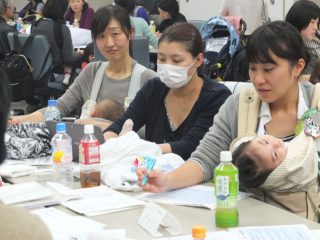 Mamabono provides social purpose organizations with support to solve problems and meet the needs of society. Participants are teamed up for a group of around 6-7 people and try to contribute their skills and knowledge to deliver solutions. Projects are designed in order for as many people to join easily. The duration of the project is within two months and each participant is supposed to commit only 5-10 hours per week. Mamabono provides participants with a safe space for every participant to help each other. They can join meeting with their babies together, they are guided to substitute others if anyone is not available on some occasions. Thanks to the strong and flexible teamwork, all the projects of mamabono have delivered excellent deliverables to the beneficiary organizations with high appreciation. Examples of deliverables include marketing strategic research, a new website or its renewal plan, social media strategy, operation manuals, etc.
Mamabono provides social purpose organizations with support to solve problems and meet the needs of society. Participants are teamed up for a group of around 6-7 people and try to contribute their skills and knowledge to deliver solutions. Projects are designed in order for as many people to join easily. The duration of the project is within two months and each participant is supposed to commit only 5-10 hours per week. Mamabono provides participants with a safe space for every participant to help each other. They can join meeting with their babies together, they are guided to substitute others if anyone is not available on some occasions. Thanks to the strong and flexible teamwork, all the projects of mamabono have delivered excellent deliverables to the beneficiary organizations with high appreciation. Examples of deliverables include marketing strategic research, a new website or its renewal plan, social media strategy, operation manuals, etc.
Participants can meet people they may not meet otherwise and can get stimulation as if they feel like having grown up and broaden their range. Many of them testify, “I’ve got more confidence to get back to the job,” “I’ve found skills I didn’t notice by being pointed out by team members from other industries,” or “I’ve got a feeling that I can somehow manage both child-rearing and the work.”
Programs
Projects usually take two months. Participants with various diverse background may gather and learn different values and knowledge from each other, as well as joyful chat about daily anecdotes to do with child-rearing.
1. Registration and teaming
When you get interested in mamabono, just send the registration form by filling in job experiences, etc.
Service Grant Japan will organize teams based on the registration information and inform everyone by email about the assigned project and its details.
2. Orientation
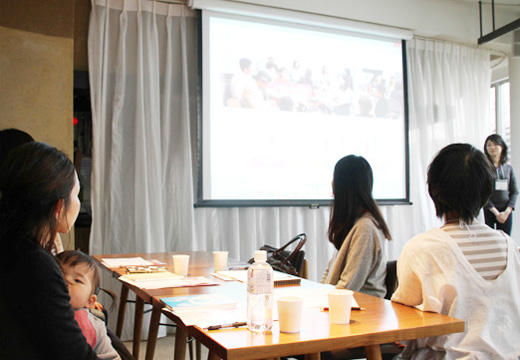 The first step is to gather with team members only and introduce yourself to others.
The first step is to gather with team members only and introduce yourself to others.
In the orientation, you will acquire basic information about your client organization, the outline of the pro bono project, and start the discussion on tasks and roles with your team members.
3. Kick-off
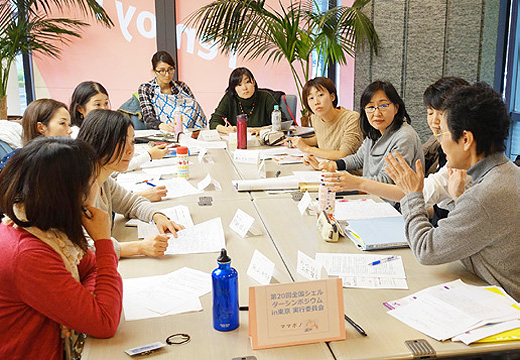 The kick-off is the first meeting for your team and the beneficiary organization to get together.
The kick-off is the first meeting for your team and the beneficiary organization to get together.
Your team will talk with your client about the purpose and the goal of the project, then listen to their voice to find what is needed and what should be solved.
4. Research, planning, production work
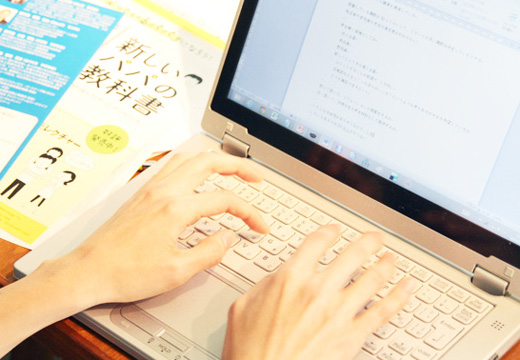 Team members share various tasks such as visiting beneficiaries, having interviews with stakeholders, making desktop research, writing materials, etc. Most of the pro bono work is done individually at home, together with occasional online meeting or internal communication by emails or online tools.
Team members share various tasks such as visiting beneficiaries, having interviews with stakeholders, making desktop research, writing materials, etc. Most of the pro bono work is done individually at home, together with occasional online meeting or internal communication by emails or online tools.
5. Proposals
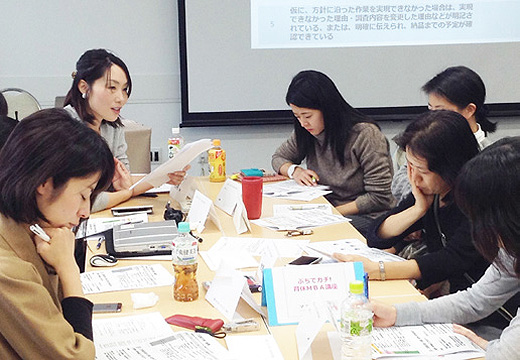 There are at least two important meetings with the beneficiary organization, including a mid-term proposal and a final proposal.
There are at least two important meetings with the beneficiary organization, including a mid-term proposal and a final proposal.
Mamabono team presents their work to their client. The team will revise and finalize the deliverables after they take feedback from the client.
6. Celebration
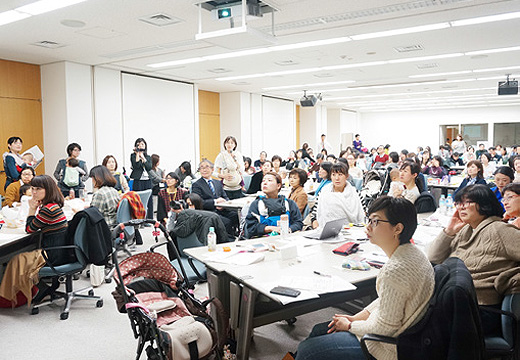 Every team shares the stories of their projects with all the teams. It is a great opportunity for everyone to learn about various social problems each beneficiary organizations face with as well as to acknowledge every splendid work by all of the mamabono participants.
Every team shares the stories of their projects with all the teams. It is a great opportunity for everyone to learn about various social problems each beneficiary organizations face with as well as to acknowledge every splendid work by all of the mamabono participants.
Mamabono projects in Japan (Japanese page)
Implementing Mamabono in your country
Mamabono is also attracting attention overseas.
There are organizations that actually started the operation of Mamabono in their countries.
If you are interested in the operation, please get in touch with us.
Organizations implementing Mamabono
Work for Social(Spain)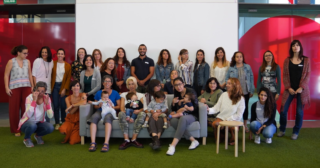
It is an organization that promotes Pro Bono in Spain. They got interested in Mamabono from the presentation by Ikuma Saga, Founder & CEO, Service Grant Japan, at the Global Pro Bono Network. And they implemented Mamabono projects in 2019.
|
When I first met Ikuma, it was in Paris at the European Pro Bono Summit in 2016 and I went there with my baby of 4 months. I’ve always thought that the period where you become a mother and you are taking care of the baby is a moment of growth, but also it is a vital moment where you can feel very lonely. Mamabono allows the creation of a peer-to-peer community that empowers the professional development of women in that period of life. Maternity leave is not very long in Spain. It passes very quickly and many mothers have different difficulties during the first months with their babies. Mamabono in Spain is more addressed to those mothers that take one unpaid and longer maternity leave and have more time to dedicate their time to pro bono work. Also for those that have already their babies in kindergarten but they are looking for a new job. I am completely in love of this program and I’d like to find a financial supporter of it in my country to be able to help more mothers and to promote pro bono practice. Ms. Andrea Sanchez, co-founder and director, Work for Social |
JSC Micro Business Capital (Georgia)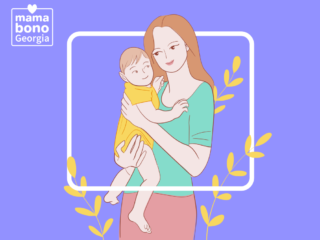
MBC is a financial institution in Georgia. Tamta, its employee, became interested in Mamabono before her maternity leave. And she is ready to implement a Mamabono project in 2022, http://new.csrdg.ge/), aiming at the economic empowerment of women with the support of CSRDG(The Center for Strategic Research and Development of Georgia).
|
The UN Post 2015 Development Agenda explicitly states that sustainable economic development and gender equality are two challenges that the states with transition economies must address simultaneously, because a complete and efficient implementation of women and girls’ rights is a prerequisite for successful economic development. These two factors intersect in the Georgian reality, where the inclusion of women with equal rights in economic activity remains a challenge. Mindful of the fact that women in Georgia do not have full access to economic activity, it is important that companies, including MBC, make greater efforts to promote an equal participation of women. Unequal economic participation of women, especially those who are mothers, also stems from an unequal distribution of care. In many cases, women combine paid labor with unpaid work. More often, in our reality, they are not able to do paid work at all. For an equal economic participation of women, it is necessary to help them to develop the relevant knowledge and skills to overcome the gaps they have due to the birth and care of a child. Women, especially those in rural areas, need support, training, internships and involvement in today’s economy. That is why I decided to adopt the Japanese project “Mama Bono” to the Georgian reality and to implement the mentioned project in 2022. The project is aimed at empowering women economically and involving them in the economic activities of the country. The priority within the project is a group of women – mothers. Women who have withdrawn from economic activities or have not been able to engage at all because of their motherhood. They need reintegration and MBC will actively assist them in this. This will be the project “Mothers for Mothers”, which involves assisting mothers left behind by employed women (mothers) involved in the economy, providing them with relevant workshops, mentoring and employment assistance. I implemented this project during my maternity leave and it’s very personal for me. Ms. Tamta Aslanishvili, MBC |
Contact:mamabono@servicegrant.co.jp
Ikuma Saga (Founder & CEO, Service Grant Japan)
Naomi Kashio(Mamabono staff, Service Grant Japan)

